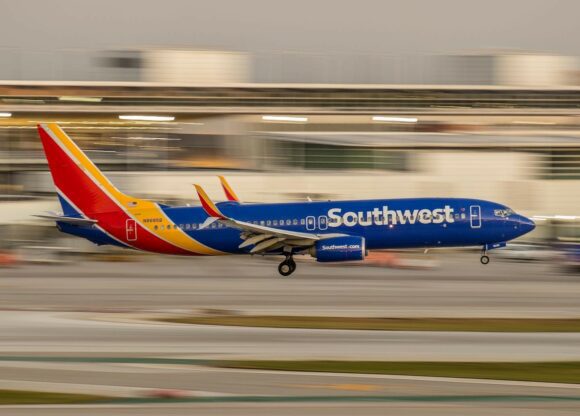
UPDATED STORY – For months, and even as recently as last Monday, Irish low-cost carrier Ryanair has been ranting against the €30 billion of state aid that has been granted by European governments to their troubled legacy airlines. But now, KLM and TAP are the first scalps for Ryanair. While previous court cases have failed, the European Union’s General Court in Luxembourg struck a different tone on May 19. It annulled the European Commission’s approval of the state aid packages by the Dutch government to KLM and that of Portugal to TAP. “An important victory for consumers and competition”, says Ryanair. On June 9, the Court gave an identical verdict on Condor Flugdienst.
The General Court rules that in all cases, the EC approved the aid without taking into account the broader perspective of its consequences.
KLM
Take the KLM case first: two months after the French government supported Air France with a €7 billion package of direct and indirect loans, the Dutch government followed suit on June 26, 2020. It was approved by parliament on July 2. The aid consists of €1 billion as a direct loan and €2.4 billion as a 90 percent government-backed revolving credit facility, supported by eleven banks. The package was conditional on KLM restructuring its organization, a reduction of its cost base by fifteen percent, the cutting of night flights to Amsterdam, and discontinuing air connections under 500 kilometers from Schiphol. The European Commission concluded on July 13 that the aid was compatible with its ‘Temporary Framework for State aid measures to support the economy in the current COVID-19 outbreak’.
In its complaint with the General Court, Ryanair stated that the EC had failed to set out the reasons why the aid previously granted to Air France would have no impact on the assessment of whether the aid for KLM was compatible with the internal market, even though Air France and KLM are two subsidiaries of the same holding company.
In its ruling, the General Court says that the aid to Air France constitutes “a contextual factor” and the Commission should have exercised “particular vigilance when examining the links between the companies belonging to that group, in order to determine whether those companies can be regarded as forming one economic unit, and, therefore, a sole beneficiary, for the purposes of the application of State aid rules.”
The Court concludes that the EC has failed to do this: “The contested decision does not contain any details as to the shareholder structure of Air France and KLM or any information about the functional, economic and organic links between the Air France-KLM holding company and its subsidiaries, even though it makes it apparent that the holding company is involved in the grant and administration of the aid envisaged for both KLM and Air France.” It adds: “Nor does the contested decision set out the possible existence of any kind of mechanism which would prevent the aid granted to Air France via the Air France-KLM holding company from benefiting KLM, through that same holding company, and vice versa.”
The European Commission has failed to demonstrate that the state aid given to Air France in April 2020 will not benefit KLM: “It failed to set out in a sufficiently clear and precise fashion, all the relevant matters of fact and law to be taken into account in order to assess a complex situation, featuring the parallel grant of two State aid measures to two subsidiaries of the same holding company, which is, moreover, involved in the grant and administration of that aid.” Moreover, the EC has “not able to verify the necessity and proportionality of the aid” and the decision has therefore been annulled by the General Court.
As the Court’s ruling and immediate recalling of aid would have damaging consequences for KLM and the Dutch economy, the effects of the annulment have been suspended pending a new decision by the European Commission.
The EC, the Dutch government, and KLM have said they will study the ruling before making further comments. It is too early to forecast the exact consequences, but a likely effect could be that further conditions are imposed on KLM if it wants to retain the €2.4 billion packages. Last month, the government confirmed it is in discussion with Brussels on a follow-on aid or equity package. It is likely this is conditional to Royal Dutch Airlines trading in slots at its Schiphol hub, just as Lufthansa has been forced to give up 24 slots in Frankfurt and Munich after it received €9.0 billion in German state support. It would be a serious blow if KLM is forced to surrender slots at its home base, but the alternative of foregoing state aid is just as damaging to its precarious financial situation.
In a reaction, Greenpeace Netherlands called on the government to impose stricter conditions on KLM that will reduce its carbon footprint. The organization has been very critical that the original package lacked real targets for its sustainability roadmap.
TAP Portugal
On TAP Portugal, the Court also ruled negatively. The airline received €1.2 billion as a loan from the Portuguese government to keep TAP going between July and December. The European Commission reviewed the request and ruled on June 10, 2020, that it was compatible with the Portuguese internal market. The airline received the loan in December and the government subsequently increased its share in TAP to 72.5 percent. Again, it was Ryanair that contested the EC decision.
The Court checked if the EC adequately examined if TAP belonged to a group, if its financial difficulties are not the result of an arbitrary allocation of costs within that group, and whether the group could have dealt with the problems itself. It found that the Commission failed to provide conclusive evidence on all three points and annulled its decision: “The General Court is not in a position to determine whether the conditions laid down in point 22 of the Guidelines on aid to undertakings in difficulty were satisfied in the present case, or whether the Commission was entitled to conclude that there were no serious difficulties in assessing the compatibility of the aid in question with the internal market and was right not to initiate the formal investigation procedure.”
Like its ruling on KLM, the Court has suspended the effects of the annulment and has given the EC time to adopt a new decision without initiating a formal investigation. The Court says there are overriding considerations that justify limiting the temporal effect of the annulment. For example, the aid measure for TAP is part of an ongoing process that is still under review by the European Commission.
Denying TAP the money “would have particularly damaging consequences for Portugal’s economy and air services, in an economic and social context which has already been affected by the serious disturbance in the economy caused by the COVID-19 pandemic. In those circumstances, the General Court decides to suspend the effects of the annulment of the contested decision pending the adoption of a new decision by the Commission.”
Portugal’s Prime Minister Antonio Costa said it’s up to the European Commission to comply with the court’s ruling, not the Portuguese government, he said in Diario de Noticias. “It means nothing, no delay. We will continue to do everything as we have been doing, and surely the EC will provide the information to justify the decision it has taken regarding TAP.” The carrier’s business plan TAP 3.0 aims to restructure the group’s balance sheet by 2023, adjust capacity, reduce operating costs, and enhance revenues.
Ryanair welcomes decision
Ryanair has welcomed the General Court’s ruling, although it lost a case on a €10 billion state aid program from Spain. In a statement, it said: “The European Commission’s approvals of State aid to Air France-KLM and TAP went against the fundamental principles of EU law and reversed the clock on the process of liberalization in air transport by rewarding inefficiency and encouraging unfair competition.”
“During the Covid-19 pandemic over €30 billion in discriminatory State subsidies have been gifted to EU flag carriers. Unless halted by the EU Courts in line with today’s rulings, this State aid spree will distort the market for decades to come. If Europe is to emerge from this crisis with a functioning single market, airlines must be allowed to compete on a level playing field. Today’s rulings in two of more than twenty appeals filed to date before the General Court are an important victory for consumers and competition.”
On its list of state aid to European airlines, Air France-KLM is on top with €14.4 billion, followed by Lufthansa with €11 billion, Alitalia with €3.5 billion, TAP with €1.6 billion (including €462 million in recent Covid-support), SAS with €1.3 billion, Finnair with €1.2 billion, Norwegian with €0.8 billion, LOT Polish Airlines with €0.65 billion, Condor with €0.6 billion, and Air Europa with €0.5 billion.
Update June 9:
Ryanair added another scalp to its collection on June 9. The EU Court gave an almost identical ruling on Ryanair’s appeal against the EC-decision to grant two loans to German leisure airline Condor Flugdienst. The federal government guaranteed €550 million in loans to help Condor, which was part of Thomas Cook Group before that collapsed. Back then, the government of the state of Hessen already helped Condor with a €380 million rescue package.
Despite this, Condor filed for insolvency in September 2019. It set to be taken over by LOT Polish Airlines until the airline withdrew its offer following the Covid crisis. In order to keep the airline alive, it received the two government-backed loans, on which the European Commission ruled they were compatible with the internal market.
In its ruling on June 9, the Court says the EC’s decision “contains an inadequate statement of reasons as regards the direct causal link between the costs occasioned by the extension of the insolvency period and the cancellation and rescheduling of Condor’s flights as a result of the travel restrictions imposed in the context of the Covid-19 pandemic. Therefore, the General Court annuls the contested decision.”
As with KLM and TAP, the court suspends the effects of the annulment pending a new decision by the EC.
Active as a journalist since 1987, with a background in newspapers, magazines, and a regional news station, Richard has been covering commercial aviation on a freelance basis since late 2016.
Richard is contributing to AirInsight since December 2018. He also writes for Airliner World, Aviation News, Piloot & Vliegtuig, and Luchtvaartnieuws Magazine. Twitter: @rschuur_aero.







